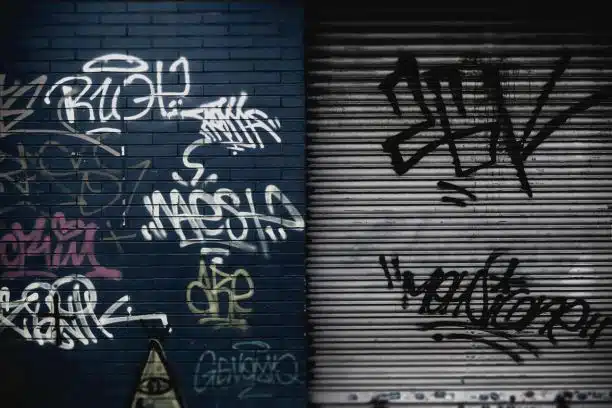Orwellian Hardcore and Huxleyan Softcore Tyranny
In their book, How Now Shall We Live?, Charles Colson and Nancy Pearcey contrast the dystopian predictions of Aldous Huxley’s Brave New World (1932) with those of George Orwell’s Nineteen Eighty-Four (1949). Both forecast a bleak future for human society, but they differed on how that society would be managed by the ruling elite.
Orwell feared a brutal totalitarian-style system in which Big Brother controlled all aspects of people’s lives through intimidation and coercion, whereas Huxley envisioned a society that had been so compromised and corrupted by narcissism, materialism and hedonism that the people had voluntarily surrendered their freedoms for a life of ease, security and immediate gratification. While Orwell warned of an oppressive regime that controlled the media and utilized propaganda to spread lies and suppress the truth, Huxley depicted a self-absorbed, complacent and entertainment-obsessed society in which no one cared about the truth.
Whereas Orwell warned of an all-powerful and intrusive government that banned books and other forms of free expression, Huxley forecast a softer and more seductive kind of tyranny in which the government wouldn’t need to ban books or censor speech because no one cared about reading serious literature or speaking out on political issues anymore. While Orwell predicted a society deprived of information by government censors, Huxley predicted a society over-saturated by information from electronic media to the point that people lost the ability to process rationally what they saw and heard. And whereas Orwell described a world in which the government controlled people by inflicting pain, Huxley imagined a world where people were manipulated by their craving for pleasure, safety and security.
As Colson and Pearcey observe, “Both novels have proven to be uncannily accurate – Orwell describing the totalitarian plague of our century, Huxley the sickness of affluent free societies.” Huxley was especially critical of civil libertarians who are always vigilantly on guard against an “externally imposed tyranny” but seem oblivious to the fact that people in prosperous Western societies are particularly vulnerable to being manipulated by the mindless distractions of modern technology.
The kind of “democratic socialism” that the Democratic Party in America promotes is a milder form of cultural Marxism that avoids the kind of violent revolution that classical Marxism sanctioned, but in fact both ideologies share a similar goal: a thoroughly socialist society in which government controls the economy as well as the public lives of its citizens. In that respect, democratic socialism is merely a more gradual and subtle means to the same end. Posing as egalitarian and tolerant, in fact it is committed ultimately to the destruction of traditional American values and ideals – including the principles of economic freedom and basic civil liberties such as freedom of speech, freedom of information, and freedom of religion.
Recent American history seems to support Huxley’s thesis that perhaps we have as much to fear from cultural seduction and the pitfalls of prosperity than from overt government tyranny. But in reality the two alternatives are not mutually exclusive as a Huxleyan society can so weaken the social and moral fabric as to set the stage for the ultimate Orwellian nightmare. In fact, that very scenario appears to be playing out at the present time as Uncle Sam is being transformed into Doctor Sam and eventually, one fears, into Big Brother Sam.
In 1984 the powers-that-be endeavor to expunge from public awareness vital elements of the past that contradict or complicate their utopian socialist agenda. To this end, Orwell wrote of the “memory hole” into which inconvenient historical truths were deposited that might otherwise inform citizens of the way things were prior to their birth. That being accomplished, history could then be rewritten in accord with the prevailing state-controlled narrative as supervised by a new government department, the ironically-entitled Ministry of Truth. This was, of course, the state of affairs in Nazi Germany and the Soviet Union as well as in the current People’s Republic of China and other totalitarian states.
In modern America the radical Left has been effectively clever and devious. While academia has purged, misrepresented and misinterpreted many aspects of America’s past under the guise of scholarly historical revisionism (more accurately, radical historical deconstructionism such as the “1619 Project”), the Left has generally avoided taking the revolution to the streets except during times of intense national crisis. Such has been the case in 2020 as the Left, under the cover of racial protests over “police brutality,” has instigated the worst domestic violence since 1968. Sections of more than 150 cities have been looted and burned by rampaging mobs, and numerous historic monuments and other national symbols have been destroyed. Violent revolutionaries seized portions of several cities, driving out the police and setting up independent “nations” while cowardly (or sympathetic) governors and mayors refused to restore law and order.
These are chilling prospects, but they are the inevitable products of the process of the secularization of Western (and American) culture that have been in effect since the dawn of the Enlightenment as first manifest in the tragedy that was the French Revolution. The tide of secularism has ebbed and flowed over the past two centuries, but over time there has been an obvious and undeniable erosion of traditional Judeo/Christian values and ethics.
Humanity has a fatal flaw: a proclivity toward egocentrism that expresses itself in rebellion against God and his moral laws. Whether it manifests itself in the totalitarian impulse to control others or in libertine individualism, the end result is the same. Government is the product of cultural values, which are themselves barometers of the general state of spirituality in society. Human nature never changes. We are stuck in a perpetual and unhealthy cycle of addiction that the Bible labels “sin”. In his masterful trilogy, The Lord of the Rings, J. R. R. Tolkien identifies the “one key” that controls the whole flow of history as the lust for Power – the ultimate false idol that is manifest in myriad forms of narcissism, materialism, hedonism, and the perpetual lust for status, wealth, success, and independence. All are humanistic substitutes for God, and all ultimately lead to Huxleyan-style moral and spiritual impotence and eventual servitude to an Orwellian-style Omnipotent State.
“Two Paths to the Bottom: Orwellian Hardcore and Huxleyan Softcore Tyranny.” Adapted from Jefrey D. Breshears, American Crisis (Centre•Pointe Publishing, 2020.)


